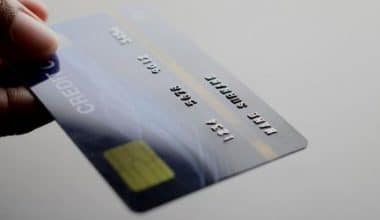Trying to keep a tab on one’s expenses is hard work, but then, we all want financial freedom, and that simply means we have to do it. Luckily, there are tons of free online money management tools that will help you achieve your personal goals. There are also paid ones too, depending on what your financial needs are. You will definitely be in control of your finances if you want to.
What Are Money Management Tools?
Money management tools are software that helps individuals keep tabs on their cash flow. It generally helps you track and manage your financial transactions, evaluate potential investments, create a budget, and set savings targets. Money management tools help you plan, manage, control, organize and control your finances.
Online Money Management Tools
Most management tools are online, and this is to ensure that you keep track of your finances at all times. There are tons of online money management tools available, but then, you can check out the following;
#1. Mint
You can’t possibly talk about online money management tools without including Mint. Over the years, they have proven to be a leading figure in managing finance. With Mint, you can certainly gather all your financial accounts and manage them in a single place. All you have to do is simply plan for your money, monitor your progress, and accomplish more without spending a dime. You heard right, Mint is one of the best free online money management tools you can get.
#2. Mvelopes
Mvelopes is not one of the free online money management tools. But then it gives you 30 free trials. Mvelopes’ ground-breaking, award-winning system combines innovative financial software technology with the traditional envelope budgeting method to help you manage your finances while living within your means.
#3. Quicken
Another top-leading money management tool is Quicken. Actually, Quicken is one of the online money management tools that allow you to choose the best plan for your needs. They understand we all have different financial goals and so offer various options. However, Quicken is not free, but its services are apparently affordable. You can get a plan for as low as $3.49 a month. Whatever your goals are, Quicken is there to organize your personal finances. It’s quite very easy to use and if you want something technical, they’ve got you covered too.
#4. Yodlee and MoneyCenter
One of the fascinating things about MoneyCenter and Yodlee is their branding. MoneyCenter and Yodlee didn’t just offer people an opportunity to manage their finances. They personalized customers’ financial goals. For instance, rather than writing jargon and tons of quotes about financial freedom, they used “Make financial wellness a state of mind and take control of your financial future.” Making customers understand the need to prioritize their finances as it relates to their overall well-being. This has brought in over 40 million across 600 financial institutions.
#5. Moneystrands
MoneyStrands describes itself as a “personal budgeting & online money management software,” which is also one of the best online tools available. These guides need just a little information or permission to automatically pull data from your bank, credit card, and investment accounts into a single unit. They also provide you with an up-to-date picture of your financial life to help you save money and achieve your financial goals.
#6. PocketSmith
Believe me, I so love the PocketSmith bright line. It says, “Forge your own financial path—we’ll provide the tools.” This is absolute freedom and control. Irrespective of what your goals are, PocketSmith is willing to help. That’s why they provide many options that suit people’s individual budgets. No doubt they are known as the best personal finance software.
#7. Moneydance
“Moneydance is user-friendly personal finance software that includes all of the features you require, including online banking and bill payment, account management, budgeting, and investment tracking.” It also includes a multi-currency option, detailed graphs, and reports. All you need to do is to grant the required permission, and it will automatically download your transactions. It can also be used for payment, logging your transactions, and cleaning up instructions.
Free Money Management Tools
One of the good things about managing money is that there are several free online money management tools available. So if you have bad money habits or simply want to manage your personal finance, there are tons of free money management tools out there to choose from. Check out some of these below;
#1. ClearCheckbook
There are many online free money management tools, but few encompass a financial register and tools. If at any point you want to gain mastery over control of your finances, turn to ClearCheckbook. You don’t just get accurate figures with your Clearcheckbook dashboard, you’ll also get access to a bill tracker, investment portfolio, reports, budgeting tools, saving goal tracker, and more. All you have to do to use this free online tool is to manually input your account information or grant them permission to automatically connect your account to a single spot.
#2. BudgetPulse
BudgetPulse is one of the best free online money management tools. Whatever your financial goals are, trust BudgetPulse to handle them beyond your expectations.
Personal Money Management Tools
It’s never enough to make money, we must always try to ensure that we manage what we earn. One of the best means of managing one’s finances is by using personal money management tools. There are several personal money management tools available online. Check out some of these below.
#1. Personal Capital
I particularly like the fact that using Personal Capital saves you the stress of switching between different windows in order to see how everything is doing if you have more than one account. Personal Capital is one of our money management tools because it enables you to manage your various bank and investment accounts from a single standpoint. Additionally, it provides investment and financial advice to clients for a minute fee. Whatever your investment goals are, you’ll definitely get them figured out with Personal Capital. But then it isn’t free. You’ll have to pay an annual fee based on the amount.
#2. FutureAdvisor
FutureAdvisor made it to our list of personal money management tools because of two great features. The first is that it offers investment advice, and the second is that it has absolute control. Account holders do have absolute control over their investments at all times. When it comes to managing your personal investments, turn to FutureAdvisor. Trust me, it gives you access to a financial advisor at an affordable rate.
They work closely with Fidelity or TD Ameritrade to manage clients’ investments for a quarterly fee of 0.5%. The 0.5% is actually of the overall access, which must not be less than $5000.
#2. YNAB
Your list of personal management tools will be incomplete without YNBA. YNAB has software for managing personal finances that can assist you in becoming more financially intelligent. Well, it basically helps you manage your finances. I personally love YNBA for providing tutorials that assist people with dealing with their finances. Trust me, there aren’t many personal money management tools that offer financial education at the same time. If you have bad financial habits and want to manage your personal finances, then you should check out YNBA, among other money management tools.
All you have to do is grant YNBA software permission to link your bank account details. Then it takes it up from there and integrates all the information about your spending into a unit. This is basically to keep track of your budget. I regret to announce, though, that YNBA isn’t free. Yeah, you heard right. These services cost $14.99 per month or $98.99 per annum. However, you can get up to 34 days of a free trial.
#3. Tiller Money
Tiller Money made it to our list of personal money management tools because it’s an all-in-one financial tool that consolidates all of your financial information into a single location by syncing all of your bank, credit card, loan, investment, and other accounts with a Google Sheet or Excel template. Account holders can modify their accounts to suit their needs. Templates are available to help you organize your data, or you can create a new spreadsheet from scratch. I so love the fact that you are never in the dark about your finances. Tiller Money literally emails you every day with a summary of your recent transactions and account balances. I hate to be the bearer of bad news, but the truth is, their services are not free. You’ll get a 30-day free trial period after which their service cost $79 annually.
#4. TurboTax
TurboTax isn’t on our list of personal money management tools not only because of its ability to help you manage your finances but also because it’s useful when it comes to tax. Oh well, you heard right, it isn’t one of the free money management tools. No, it isn’t. TurboTax is exceptional when it comes to filing your taxes. The program can be very helpful even though it costs a fortune. If you’re looking for personal money management tools that are user-friendly and help out with taxes, then you should consider TurboTax. All you have to do is grant the app permission to automatically import the necessary information from your W-2 from your employer. If you’ve got no time for that, you can simply take a picture of it, and the TurboTax software will take it up from there.
There’s a feature I genuinely love about TurboTax, and that’s the fact that it connects you to a tax professional who can provide you with individualized guidance and respond to questions you have regarding your tax return. If you want to get the most from their services, you will have to upgrade to the paid plan.
What are the 5 pillars of money?
at first sight. The five pillars of financial literacy—earn, save, invest, safeguard, spend, and borrow—are covered.
Is Excel Good for money management?
And not just because you can completely customize it! Many Excel users discover that building a practical budgeting spreadsheet aids them in understanding where their money is coming from.
What is your most powerful wealth building tool?
Ramsey has stated this time and time again, notably on the Ramsey Solutions blog and on Facebook, “Your salary is your greatest wealth-building weapon.” Ramsey thinks you can achieve the financial comfort you deserve and perhaps even become a millionaire one day if you use your income wisely and invest 15% of it.
What is the golden rule of money management?
Don’t save what is left over after spending; instead, spend what is left over after saving, is one of his most well-known pieces of financial advice. In other words, pay yourself first by saving money before you spend it.
What are the 3 financial analysis tools?
Several methods are frequently applied in financial statement analysis. The three most crucial methods are ratio analysis, vertical analysis, and horizontal analysis.
Do banks still use Excel?
Excel is still used by many financial organizations today, however because of its flexibility, it can have security flaws.
What is the number one rule of money management
Make future significant purchases and regular costs a priority. Without a map to follow, you won’t be able to get to Financial Freedom Parkway. Having a plan is a necessary component of basic money management.
Financial Institution That Offers Money Management Tools
There are several financial institutions that offer money management services. Hey, trust me, it’s just a marketing strategy whose purpose is solely to bring in more clients or retain existing ones. The following are a few of the financial institutions that offer money management tools;
#1. Bankers Trust
Bankers Trust is a privately held bank in Iowa. It is your one-stop shop if you need help with banking, lending, or managing your wealth.
Bankers Trust has a personal money management tool that helps just about anyone to track or easily keep tabs on their financial objectives, investments, and budget. With the Bankers’ Trust personal management tool, you can also get the full picture of your financial standing by importing data from other accounts. If you’re a customer with Bankers Trust, you can gain access to the Personal Finance money management tool at no extra cost through their Internet and Mobile Banking. You can receive alerts, track your expenses, monitor your spending, and reach your financial goals.
#2. First Financial Bank-Panorama
First Financial Bank has a money management tool named Panorama. Among the many features available in First Financial Bank’s online banking platform is Panorama, a personal financial management tool. Panorama allows you to consolidate your financial data from various sources, such as different banks, into a single location. If you bank with them, you’ll get these services at no extra cost.
From your loan to your credit cards, down to your investments, the Panorama tool securely brings together all of your accounts from any financial institution and consolidates them into one unit.
#3. Wells Fargo Bank-My Money Map
Wells Fargo Bank is one of the financial institutions that offer money management tools to customers.
My Money Map is a user-friendly money management tool that allows you to see and manage your money habits at a glance. Whether you want to get smart with your savings, simplify your retirement plans, or create your budget, My Money Map from Wells Fargo Bank is good to go. You can track your finances by creating a budget and integrating your accounts into one unit. All of your financial activity is recorded and organized into familiar categories, whether you pay with a Wells Fargo credit card, debit card, check, or bill pay, giving you a bird’s-eye view of your whole financial picture.
What are 10 Money Management Tips?
- Pay yourself first.
- Draw up a budget plan.
- Do not rely on plastic; rather, carry cash.
- Make room for emergency spending.
- Consult a financial adviser.
- The Automatic Investing System
- Have financial goals and build a good credit report.
- Prioritize Investment
- Track your expenses.
- Stay away from debt.
- Plan your investments
What Can I Use to Manage Money?
The following tips will help you effectively manage your finance;
- Have financial goals
- Draw up a budget plan
- Pay yourself first.
- Avoid debt
- Make room for emergency spending.
- Consult a financial adviser.
- The Automatic Investing System
- Plan you retirement
What Are The 5 Principles Of Money Management?
- Set financial goals but make sure they’re realistic.
- Invest in long termDiversify your investment
- Avoid debt
- Plan for emergency
What’s The 50,30,20 Budget Rule?
The 50,30,20 budget rule simply states that you allocate 50% of your earnings to your needs, 30% to wants, and the remaining 20% is whisked away to savings. The “50/20/30 budget rule” became famous when Senator Elizabeth Warren highlighted it in her book “All Your Worth: The Ultimate Lifetime Money Plan”.
Conclusion
If you really want to gain financial freedom, you have to learn to manage your personal finances. Thanks to technology, you can do this at the comfort of your home, at your own space at time, and whenever you want to with money management tools.
Money Management Tools FAQs
How can I budget on the 50, 30 , 20 rule?
- 50% of your earnings go for necessities.
- 30% of your earnings go for wants.
- 20% of your earnings go to savings and investments.
What's your biggest wealth building tool?
The most important wealth-building tools and keys to financial freedom are how much you make, save, and invest.
- Personal Finance: Basics, Importance, Types, Management ( + Free Software)
- FINANCIAL GOALS 2023: The Complete Guide for Students and Businesses (+ quick tips)
- MONEY NEUTRALITY: Understanding Money Neutrality with Ease






